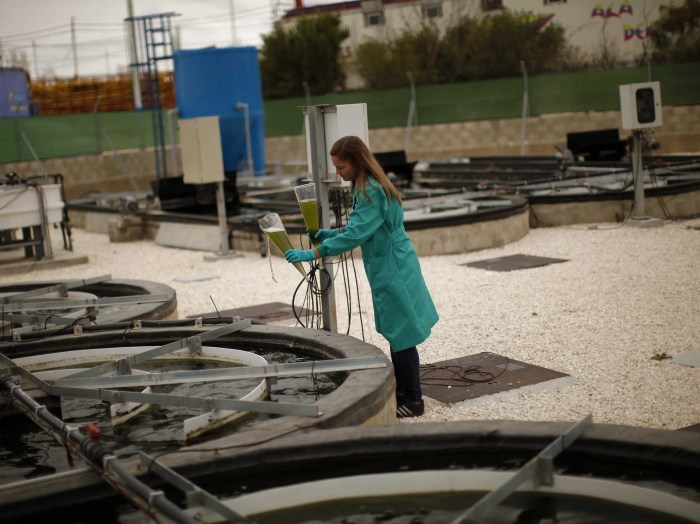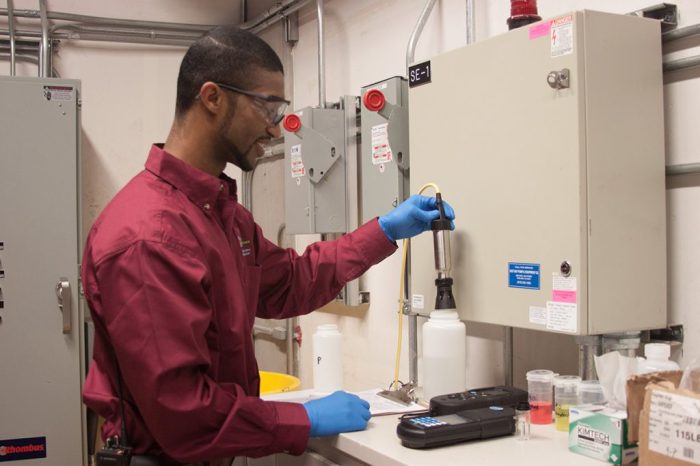How Much Do Water Treatment Plant Operators Make?
Water Treatment Plant Operator Salaries: How Much Do Water Treatment Plant Operators Make
How much do water treatment plant operators make – Water treatment plant operators play a vital role in ensuring the safety and quality of our drinking water. Their responsibilities are multifaceted and demanding, requiring a blend of technical expertise, problem-solving skills, and dedication to public health. Understanding the salary range for these essential professionals is crucial for both aspiring operators and employers. This article provides a comprehensive overview of water treatment plant operator salaries, considering various factors that influence compensation.
Salary Ranges for Water Treatment Plant Operators
Salaries for water treatment plant operators vary considerably depending on experience, location, education, and employer type. The following table provides a general overview of salary ranges. Note that these figures are estimates and may not reflect precise values in every instance. Actual salaries can fluctuate based on numerous factors discussed later in this article.
| Experience Level | Salary Range (Low) | Salary Range (High) | Average Salary |
|---|---|---|---|
| Entry-Level | $35,000 | $45,000 | $40,000 |
| Mid-Level | $45,000 | $60,000 | $52,500 |
| Senior-Level | $60,000 | $80,000 | $70,000 |
Geographical location significantly impacts salary. High cost-of-living areas like major cities on the coasts typically offer higher salaries to compensate for the increased expenses. Conversely, rural areas may offer lower salaries due to a lower cost of living and potentially less demand.
Education level plays a role in determining earnings. Operators with associate’s or bachelor’s degrees in environmental science, engineering, or related fields often command higher salaries due to their enhanced technical knowledge and skills. Specialized certifications further enhance earning potential.
Factors Affecting Compensation

Source: cloudfront.net
Several factors beyond experience and location influence the compensation of water treatment plant operators. A comparison of public and private sector employment, along with additional compensation elements, provides a clearer picture of overall earnings.
- Public vs. Private Sector: Public sector jobs, such as those with municipalities or government agencies, often offer competitive salaries and robust benefits packages, but may have slower advancement opportunities compared to private sector roles. Private sector roles may offer higher potential salaries but may have less job security and fewer benefits.
- Additional Compensation Elements: Many water treatment plant operator positions include comprehensive benefits packages, such as health insurance, retirement plans (often including employer matching contributions), paid time off (vacation, sick leave), and opportunities for professional development.
- Certifications and Licenses: Holding relevant certifications and licenses, such as those offered by the American Water Works Association (AWWA) or state-specific licensing boards, significantly impacts earning potential. These credentials demonstrate expertise and competence, leading to higher pay and increased job opportunities.
Career Progression and Salary Growth, How much do water treatment plant operators make
Career advancement for water treatment plant operators often involves increased responsibility and specialized skills. This progression is naturally reflected in salary increases.
- Typical Career Paths: A common career path might involve starting as an entry-level operator, progressing to a senior operator, then a shift supervisor, and potentially a plant manager or other supervisory roles. Each step typically corresponds to a significant salary increase.
- Experience and Skill Development: Continuous learning and skill development are crucial for salary advancements. Operators who pursue additional training, certifications, or demonstrate expertise in specific areas (e.g., advanced filtration techniques, instrumentation maintenance) are more likely to receive higher pay and promotions.
- Specialized Training: Specialized training in areas like SCADA systems operation, water quality analysis, or advanced treatment processes can significantly boost earning potential. These skills are highly valued and often command higher salaries.
Job Market Trends and Outlook

Source: businessinsider.com
The job market for water treatment plant operators is currently stable, with consistent demand driven by the ongoing need for safe and reliable drinking water. Future projections indicate continued growth in this field.
The demand for skilled water treatment plant operators is expected to remain strong in the coming years due to factors such as population growth, aging infrastructure, and increasing awareness of water conservation and quality. Technological advancements, such as automation and remote monitoring systems, will likely change some aspects of the job, but the core need for skilled operators will persist.
Technological advancements, while potentially automating some tasks, are also creating new roles and opportunities requiring specialized skills in areas such as data analytics, cybersecurity, and advanced automation systems. This evolution could lead to both increased salaries for those with relevant expertise and shifts in job responsibilities.
Illustrative Examples of Operator Roles and Salaries

Source: baywork.org
The size and complexity of a water treatment facility directly affect operator salaries. Larger facilities, with more complex systems and higher budgets, typically offer higher compensation compared to smaller plants. The type of facility also matters; specialized facilities handling industrial wastewater or desalination may offer higher pay due to the specialized skills required.
Here are examples of different operator roles and their corresponding salary ranges (these are estimates and vary based on location and other factors):
- Entry-Level Operator: Responsibilities include basic plant operation, monitoring equipment, and performing routine maintenance. Typical Salary Range: $35,000 – $45,000.
- Senior Operator: Responsibilities include overseeing plant operations, troubleshooting equipment malfunctions, and ensuring compliance with regulations. Typical Salary Range: $60,000 – $80,000.
- Supervisor: Responsibilities include managing a team of operators, overseeing daily plant operations, ensuring safety protocols are followed, and managing budgets. Typical Salary Range: $70,000 – $100,000.
FAQ Insights
What are the typical benefits offered to water treatment plant operators?
Benefits packages vary but often include health insurance, retirement plans (e.g., 401k), paid time off, and sometimes life insurance or disability coverage.
How does union membership affect salary?
Unionized water treatment plant operators often receive higher wages and better benefits compared to their non-union counterparts.
Are there opportunities for overtime pay?
Yes, overtime pay is common, especially during emergencies or periods of high demand.
What is the potential for remote work in this field?
Remote work is limited in this field due to the hands-on nature of the job and the need for on-site presence at the treatment plant.




















